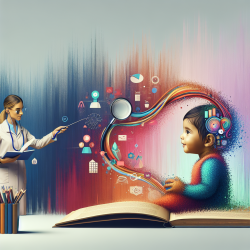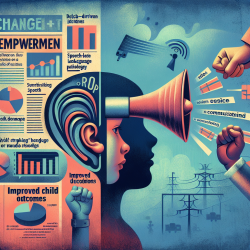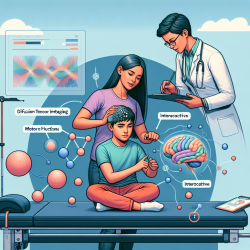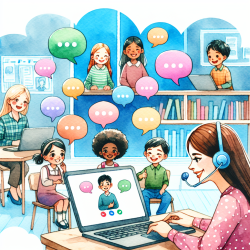Introduction
Artificial Intelligence (AI) is revolutionizing healthcare, offering innovative solutions that enhance patient care and streamline clinical processes. The research article "Accelerating the Appropriate Adoption of Artificial Intelligence in Health Care: Protocol for a Multistepped Approach" provides a comprehensive framework for integrating AI into healthcare practices. This blog explores how practitioners, particularly those involved in child therapy, can leverage these insights to improve outcomes through data-driven decisions.
Understanding AI's Role in Child Therapy
The adoption of AI in healthcare is transforming how we analyze, diagnose, and treat medical conditions. In child therapy, AI can be particularly beneficial in identifying patterns and customizing treatment plans. By utilizing AI, therapists can access large datasets that provide insights into effective therapy techniques, allowing for more personalized and effective interventions.
Key Insights from the Research
The research emphasizes the importance of building awareness and capacity among healthcare providers to adopt AI. This involves:
- Education and Training: Developing curricula that equip practitioners with the necessary skills to understand and implement AI technologies.
- Strategic Partnerships: Collaborating with AI experts and educational institutions to foster innovation and knowledge exchange.
- Knowledge Translation: Creating resources that translate complex AI concepts into practical applications for therapists.
Implementing AI in Child Therapy
For practitioners in child therapy, integrating AI can enhance the precision of assessments and interventions. Here are some steps to consider:
- Engage in Continuous Learning: Stay updated with AI advancements and participate in training programs that focus on AI applications in therapy.
- Utilize AI Tools: Implement AI-powered tools that assist in analyzing speech patterns, behavioral cues, and therapy outcomes to tailor interventions.
- Collaborate with Experts: Work with AI specialists to understand the potential and limitations of AI technologies in therapy settings.
Encouraging Further Research
While AI presents numerous opportunities, it is crucial for practitioners to engage in ongoing research to understand its impact fully. By participating in studies and sharing experiences, therapists can contribute to the development of AI technologies that are ethical, effective, and aligned with the needs of children and their families.
Conclusion
The integration of AI in child therapy is a promising frontier that can significantly enhance therapeutic outcomes. By adopting a data-driven approach and leveraging AI tools, practitioners can provide more personalized and effective care. To explore the detailed framework and insights from the original research, please follow this link: Accelerating the Appropriate Adoption of Artificial Intelligence in Health Care: Protocol for a Multistepped Approach.










